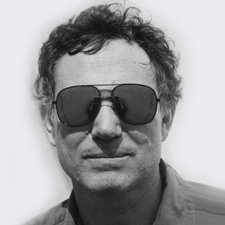Three Shingles: Difference between revisions
m →Additional credits: link Theo & Bob |
m Text replacement - "style="width:100%; overflow:auto;">" to "style="width:95%; overflow:auto;">" |
||
| Line 72: | Line 72: | ||
work. | work. | ||
<div class="toccolours mw-collapsible mw-collapsed" style="width: | <div class="toccolours mw-collapsible mw-collapsed" style="width:95%; overflow:auto;"> | ||
<div style="font-weight:bold;line-height:1.6;">Legacy Synopsis</div> | <div style="font-weight:bold;line-height:1.6;">Legacy Synopsis</div> | ||
<div class="mw-collapsible-content"> | <div class="mw-collapsible-content"> | ||
Revision as of 09:14, 23 October 2024
| Series | |
|---|---|
| Somewhere Out There | |
| Original Broadcast Date | |
| January 14, 1996 | |
| Cast | |
| Kristine McKenna, Arthur Miller, David Rapkin, Joe Frank | |
| Format | |
| Absurd Monologue, Narrative Monologue, 57 minutes | |
| Preceded by: | Eye In The Sky |
| Followed by: | Obsessions |
It's a roadside bar, with a jukebox playing country and western music.
Three Shingles is a program Joe Frank produced as part of the series Somewhere Out There. It was originally broadcast on January 14, 1996.
Synopsis
At a roadside bar, crowded for Halloween, Joe sees a woman dressed as Christ, alone. He talks to her. She stays in role, claims to be Christ. They talk about religion and life.
14:30: 'The search for the sacred requires a journey...' Joe describes a trip in search of the sacred. He ends up at what appears to be a suburban ranch house from the outside, looks like a biology lab through the window, but like an ordinary house when inside. The outside looks radically different from the inside too: a giant carousel. Joe sees the book, My life as a dwarf by Charles Steinmetz.[1]
22:00: Joe notices some shingles missing, gets on the roof to replace them. A beautiful woman comes out of the house. He has 3 shingles left over.
25:20: Joe drives along an empty rural road with the Christ-woman (she had come to the bar in a cab).
27:00: They stop at a lake. Joe wants to be baptized.
30:10: Joe recounts a dream. A circus clown plays a 16-foot grand piano, 'Bess you is my woman now'. Surgeons in an old Volkswagen bus operate on 'on a huge grossly overweight leviathan of a woman'. The national army of India supports the surgeons. Thousands of pilgrims arrive from around the world. She dies, is buried by forklift; some pilgrims jump into her grave.
36:30: Joe and the Christ-woman stop at a church with 'a huge brightly lit revolving cross'. She doesn't want to stop; Joe insists. Joe breaks a window with a rock, they enter. Joe notes that the Jesus on the cross is flat, while she's stacked. Joe lifts her skirt, comments on her shaved legs. Joe suggests doing it on the altar. She tells Joe she's not really Christ, that she's tired of this game.
45:10: Joe recounts last night's dream. He passed a small orchestra wearing mariachi outfits. A couple danced on a card table on casters. It rolled by a dead man on a gallows. Joe celebrates the occasion with wine, a candle, a map of Palestine, and prayers.
49:40: The former Christ-woman tells Joe she's 28, works at a library. She lives near her mother, whom she visits often. She went to William Neff High School[2] She hangs out in bars because she can't spend all her time at home or work.
Joe meets a woman in a bar dressed as Jesus. They talk about her life as Jesus, other gods, losers, heaven and hell. The search for the sacred described - coming to a suburban home intermittently filled with a biological research lab, feeling that you're being watched, fixing the roof. Driving through the countryside with the Christ woman, discussing Jesus' life, an impromptu baptism in a lake. A clown plays a piano while doctors operate on an enormous woman in a bus surrounded by pilgrims. Joe and the Christ-woman visit a church, she admits that she isn't Jesus and they discuss meaninglessness. An orchestra dressed as mariachis, a dancing couple rolls down a hill past a decorated hanging man and Joe performs a ritual. The Christ woman talks about her real life.
Music
- "A Meeting by the River" - Ry Cooder and V.M. Bhatt (from A Meeting by the River, 1993) | YouTube [Intro]
- "Isa Lei" - Ry Cooder and V.M. Bhatt (from A Meeting by the River, 1993) | YouTube [36:05]
Additional credits
The original broadcast credits state: "Created in collaboration with Kristine McKenna, Arthur Miller, and David Rapkin. Recorded and mixed by Theo Mondle. Music production by Bob Carlson. Special thanks to Jennifer Ferro."
Commentary
Because 1980 was the last year she could have graduated from Neff, she was born 1962 or earlier. Because the show was released in 1996 she would have been born in 1968 (She's 28.) at the latest. So the show took place 1990 or earlier. The Nixon mask at the roadside bar argues earlier. He stopped being funny not long after he resigned. Not that any of this is true.Arthur Peabody (talk) 21:03, 26 December 2022 (EST)
I've tried to imagine the geography: why someone from La Mirada (one of the many nondescript towns of LA county, in the southeast, on the Orange County border, buried in the megalopolis of, literally, hundreds of towns) who took a cab would be at a roadside bar that Joe had to drive a rural road and pass by a lake to get her home. Lake Mathews in Riverside County? Irvine Lake?Arthur Peabody (talk) 21:03, 26 December 2022 (EST)
The bizarre surgery of the second dream sequence, the support of the Indian army, the suicidal pilgrims who worshipped the patient suggest, to me, a parody of Hinduism.Arthur Peabody (talk) 21:03, 26 December 2022 (EST)
